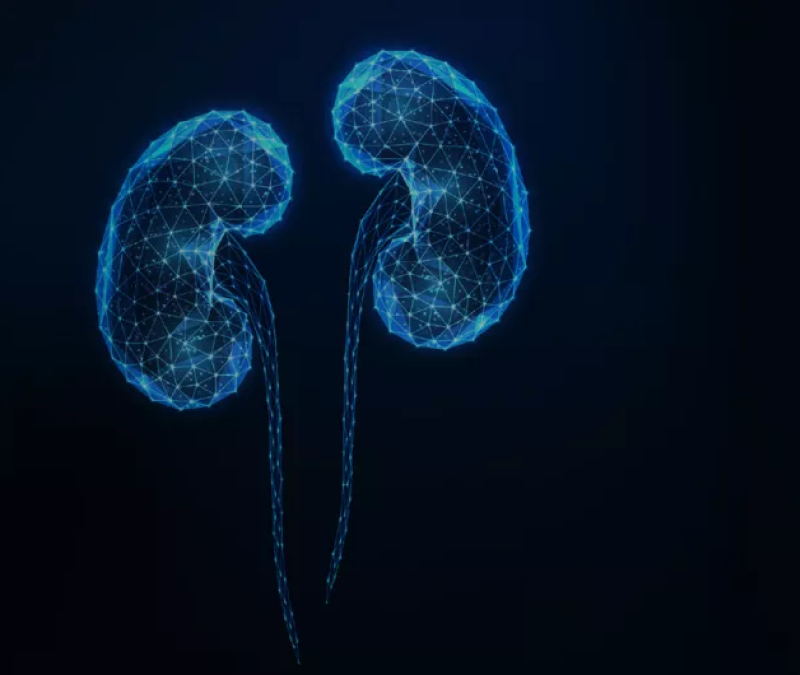Nephrology is a specialty that deals with disorders of the kidney. The Department of Nephrology and Kidney Transplantation at Aster Whitefield Hospital provides comprehensive care in terms of treatment, diagnosis and management of an entire spectrum of kidney diseases. Our Nephrology team consists of trained, dedicated, compassionate, and skilled doctors. The Department of Nephrology and renal transplantation is committed to offering care, counseling, and direction to people with kidney disease. The multidisciplinary team and state-of-the-art infrastructure are well-equipped to manage complicated kidney transplantations and will always endeavor to achieve desirable outcomes.
When required, the nephrology department at Aster Whitefield collaborates closely with Urology, Endocrinology, and other allied specialties to ensure that the other aspects are addressed by a multidisciplinary team.
- Acute Kidney Injury
- Chronic Kidney Disease/ End Stage Renal Disease
- Dialysis
- Renal Transplantation
- Nephrotic Syndrome
- Obstructive Uropathy
- UTI (Urinary Tract Infection)
- Hypertension
- Asymptomatic Urinary abnormalities
- Electrolyte abnormalities
- Congenital Disorders
- Autoimmune disorders
- Kidney biopsy
- Plasma pheresis
Facility and Technology Highlights
First centre in Asia to have Intra Operative Electron Radiation Therapy (IOERT)
Da Vinci Robot for all Surgical Advance Surgeries in Oncology and Urology
State of the Art LINAC (Elekta Versa HD)
3D Mammogram
Digital PET CT
MRI
Gamma Camera for Tumor Diagnosis
Brachytherapy
Scalp Cooling System to prevent hair loss during chemotherapy
Iodine therapy/ High dose therapy
Advanced Clinical Support
Aster Whitefield Hospital provides best of clinical excellence
State-of-the-art OT facility with modular theatre & OR integration
Level 3 MICU
11 beded SICU
12 beded CTVS ICU
State-of-the-art BMT Unit
Level 3B NICU
Level 3B PICU
30 Bedded Oncology Daycare
World-class delivery and LDR suites
NABL Accredited lab
24 Hr Emergency Facility
Dialysis
24/7 Radiology
24/7 Pharmacy
Blood Bank
Our Doctors
The nephrology department at Aster Whitefield Hospital provides comprehensive kidney care. Nephrologists treat, diagnose, and manage kidney diseases. With specialized training in kidney function and conditions, our Nephrology team consists of dedicated, compassionate, and skilled doctors. Also, the department provides preventive services, such as diet and lifestyle counseling, vaccinations, and regular screenings to prevent kidney disease. It includes acute and chronic glomerular diseases, kidney transplants, dialysis, and more.
The nephrology department at Aster Whitefield collaborates closely with urology, endocrinology, and cardiology. This helps to ensure that all aspects of the patient's condition are taken into consideration and that the patient receives the highest possible care.
The team is consistently involved in research on Kidney Diseases. This is accomplished by conducting clinical trials to test novel treatments. These clinical trials help the Nephrology team to identify new treatments for kidney diseases, or to find ways to improve existing treatments. Our Nephrologists also research ways to improve kidney transplantation and dialysis and develop new technologies for diagnosing and treating kidney diseases.
The Department of Nephrology and renal transplantation is committed to offering care, counseling, and direction to people with kidney disease. Our multidisciplinary team and state-of-the-art infrastructure are well-equipped to manage complicated transplants and will always endeavor to achieve desirable outcomes.
Treatment and Procedures offered at Aster Whitefield Hospital:
Renal Transplant Surgery
Chronic kidney disease (CKD)
Acute kidney injury (AKI)
Glomerulonephritis
Nephrotic syndrome
Kidney stones
kidney replacement surgery
kidney transplant surgery with expert kidney transplant surgeons
Urinary tract infections (UTIs) treatments: bladder infection treatment, urinary infection treatment, or kidneys that can cause pain, fever, and other symptoms.
Polycystic kidney disease:
Lupus nephritis: Kidney inflammation that can occur in people with systemic lupus erythematosus (SLE), an autoimmune disorder.
Renal artery stenosis
End-stage renal disease (ESRD)
Nephrology is the branch of medicine that focuses on the diagnosis and treatment of kidney diseases and disorders.
You may be referred to a nephrologist if you have signs or symptoms of kidney disease, such as high blood pressure, protein in your urine, or abnormal kidney function tests. Nephrologists also manage the care of patients with kidney transplants.
Risk factors for kidney disease include high blood pressure, diabetes, smoking, obesity, and a family history of kidney disease.
Dialysis is a medical treatment that helps to remove waste and excess fluid from the blood when the kidneys are no longer functioning properly. Dialysis can be performed in a hospital or dialysis center, or at home.
To prevent kidney disease, it's important to maintain a healthy lifestyle, including regular exercise, a balanced diet, and avoiding smoking and excessive alcohol consumption. Monitoring and controlling blood pressure and blood sugar levels can also help to reduce the risk of kidney disease.
Nephrologists are medical doctors who specialize in the management of kidney diseases and disorders. They diagnose and treat conditions such as chronic kidney disease, acute kidney injury, kidney stones, and glomerulonephritis.
Tests used to diagnose kidney disease may include blood tests to measure kidney function, urine tests to check for protein or blood in the urine, and imaging tests such as ultrasounds or CT scans.
Treatment for kidney disease depends on the underlying cause and severity of the condition. Treatment may include medications to control blood pressure or reduce inflammation, lifestyle modifications such as dietary changes and exercise, and in some cases, dialysis or kidney transplantation.
A kidney transplant is a surgical procedure in which a healthy kidney is transplanted from a donor into a patient with end-stage kidney disease. Kidney transplantation can improve quality of life and increase life expectancy for patients with advanced kidney disease.
Let's hear from our Doctor's








